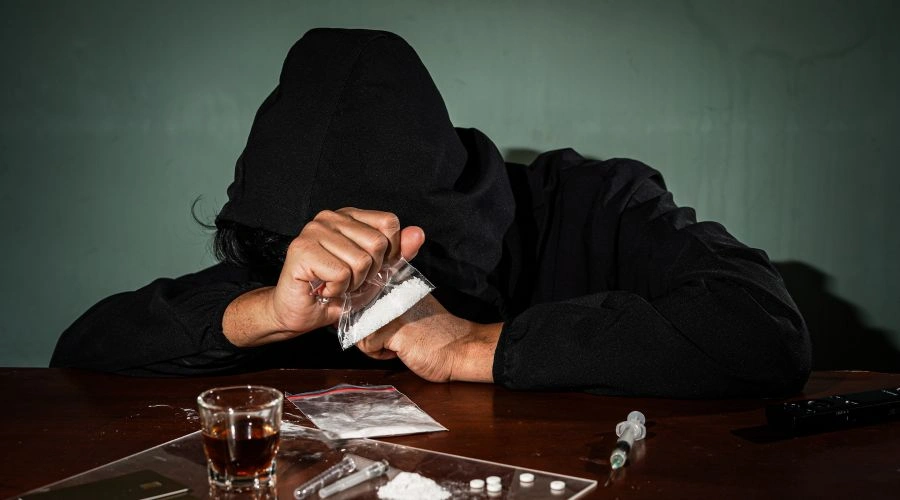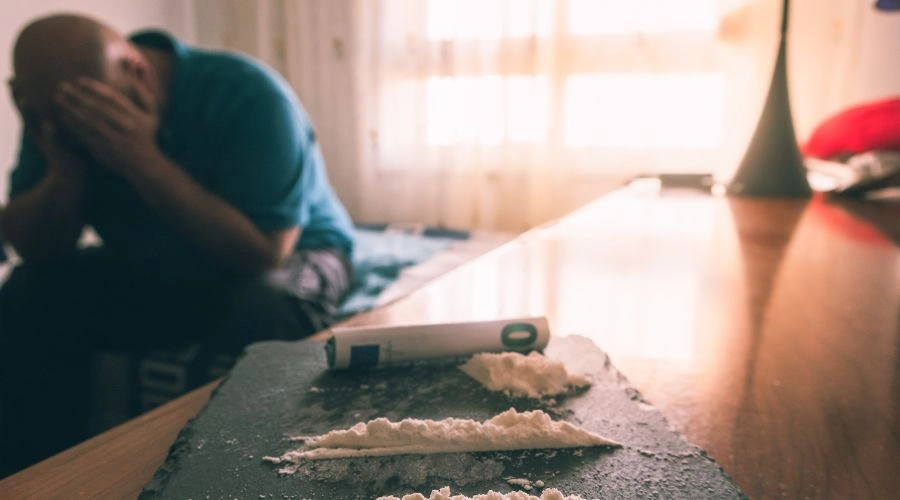Get Answers on Connections Between Cocaine Abuse and Fatigue
Most people understand that cocaine produces stimulant effects, and in most cases, causes a dramatic increase in energy. But if that’s the case, then why does cocaine make me tired?
Cocaine might be potent enough to activate your brain’s reward center, but it also leads to a “cocaine shutdown.” Your body attempts to restore balance with your dopamine levels and make up for the loss of sleep while using. All of this can lead to disturbed sleep, which makes you tired as the drug wears off.
Ingrained Recovery offers hope and healing for cocaine and crack cocaine abuse. Let our team of medical professionals take care of you as you catch up on the rest your body desperately needs.
Here’s what you need to know about your cocaine, sleep pattern disruptions, and how to correct them with our treatment plans and expert support.
Get Accredited Treatment at Ingrained
Find Help At Ingrained Recovery
Does Cocaine Cause Disrupted Sleep Patterns?
Most people think of cocaine use as something that gives them energy. While this might be true initially, it actually leads to disrupted sleep patterns and a period of recovery. Taking cocaine energizes you, but it comes at a significant cost: When the drug wears off, you’ll crash.
Studies show that sleep disturbances, triggered in a clinical setting, can also impact your cravings for more cocaine. This proves that there is a two-way relationship between cocaine addiction and sleep.
Getting proper restful sleep might help you to better combat your cravings as you start to explore your treatment options.
How a Cocaine Comedown Causes Extreme Fatigue

Normal sleep patterns go out the window when dealing with drug abuse, but why does it make such a difference for a consistent sleep schedule?
A cocaine comedown is the real culprit behind why you feel tired all the time. Euphoria is common when you take crack cocaine and other stimulants. These drugs influence the brain’s reward system, flooding it with dopamine (often called the “feel-good” chemical).
Once the central nervous system is able to clear out some of the effects of cocaine, your brain has a new response. Instead of sending your chemical levels back to balance, it actually halts any further production of dopamine. It can take quite some time to get back to a balanced level of the feel-good chemical.
Until then, you’re likely to have poor sleep quality and mental health issues like anxiety and depression.
Cocaine Withdrawal Symptoms and Fatigue: Will You Get Tired and Sleepy?
Maybe you’re already facing down a cocaine addiction with a robust treatment plan. Don’t be surprised if you need a few days or even a full week to fight off that extreme fatigue. In addition to some of the other physical effects of withdrawal, being tired and sleepy might be the most impactful.
Some people who enter into treatment would prefer to sleep off their withdrawal symptoms, which can be quite unpleasant at times. Anxiety, irritability, depression, difficulty concentrating–all of these signs of withdrawal are hard to manage on your own.
If you have the opportunity to rest and sleep them off, you might prefer that while also giving your body what it craves.
Stimulants and Sleep Disturbances: Powder Cocaine vs Crack Cocaine
Substance abuse of any kind can lead to intense cravings and withdrawals, but how about your preferred administration route? The form of cocaine you use can directly impact whether you’ll achieve restful sleep.
According to research, smoking crack cocaine gives the most immediate effect, has the most serious consequences, and leads to more addiction than snorting powder cocaine. Because smoking allows you to have a more concentrated dosage, you might have issues when you want to fall asleep.
That said, the effects of cocaine comedowns may also be more concentrated. They may leave you with intense exhaustion in the aftermath of the high.
Treatment Options for Cocaine Abuse at Ingrained Recovery

Cocaine addiction treatment usually starts with a medically supervised detox where you can be under the watchful eye of a team of doctors and nurses 24/7. They can help you tease out whether you need to deal with a cocaine comedown or a legitimate sleep disorder.
Medication may also help to make you feel more comfortable at this stage, as the cocaine’s effects are wearing off.
From here, you can transition to long-term treatment for cocaine use disorder with residential living arrangements in our luxurious facility. We’ll be able to teach you relaxation techniques that help you sleep more easily and monitor you for disrupted sleep patterns.
You won’t need to stay awake all hours of the night when you can let your guard down and rest easy with us, knowing that you aren’t at risk of a cocaine overdose.
Up To 100% of Rehab Covered By Insurance
Find Help At Ingrained Recovery
Get Help at Ingrained Recovery When Cocaine Affects Your Sleep
Are you both physically and mentally exhausted, and keep asking yourself: Why does cocaine make me tired all the time? It may be time for you to start getting serious about correcting your sleep deprivation by getting professional help.
Ingrained Recovery is here for anyone struggling with cocaine addiction, offering comprehensive treatment plans from detox to long-term care.
We can verify your insurance benefits in a quick and confidential call so that you know what to expect. You may even find that insurance covers up to 100 percent of the cost of rehab.
Let our enrollment team answer your questions about how this harmful drug impacts your sleep and take the first steps toward recovery and sobriety today!
References
- Bjorness, T. E., & Greene, R. W. (2021). Interaction between cocaine use and sleep behavior: A comprehensive review of cocaine’s disrupting influence on sleep behavior and sleep disruptions influence on reward seeking. Pharmacology, biochemistry, and behavior, 206, 173194.
- Nestler E. J. (2005). The neurobiology of cocaine addiction. Science & practice perspectives, 3(1), 4–10.
- Kowatch, R. A., Schnoll, S. S., Knisely, J. S., Green, D., & Elswick, R. K. (1992). Electroencephalographic sleep and mood during cocaine withdrawal. Journal of addictive diseases, 11(4), 21–45.
- Kiluk, B. D., Babuscio, T. A., Nich, C., & Carroll, K. M. (2013). Smokers versus snorters: do treatment outcomes differ according to route of cocaine administration?. Experimental and clinical psychopharmacology, 21(6), 490–498.

